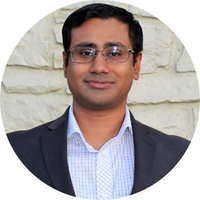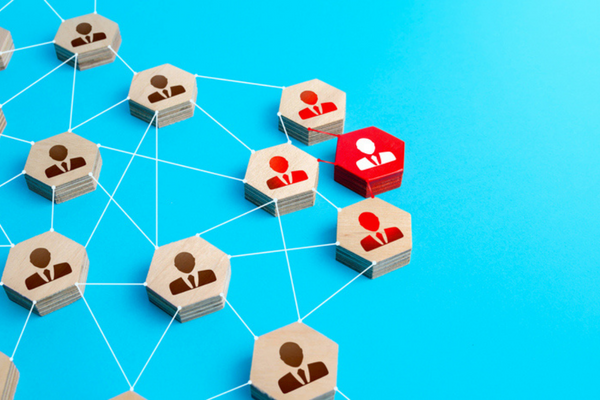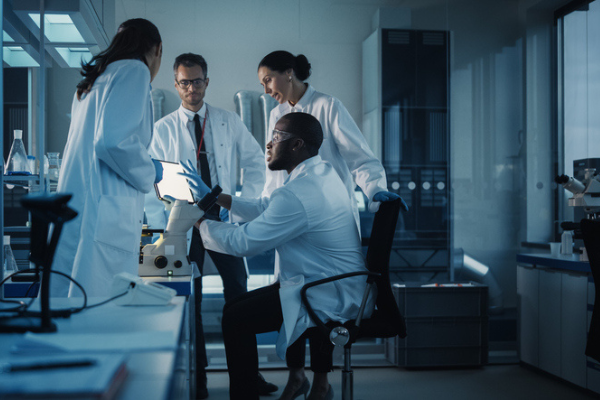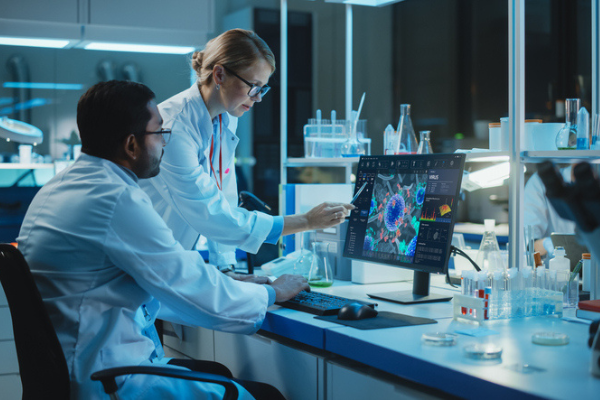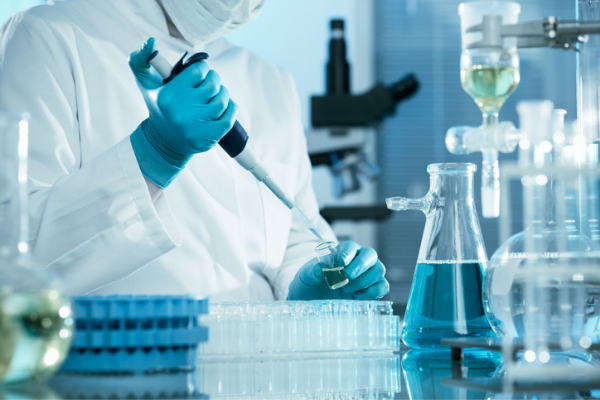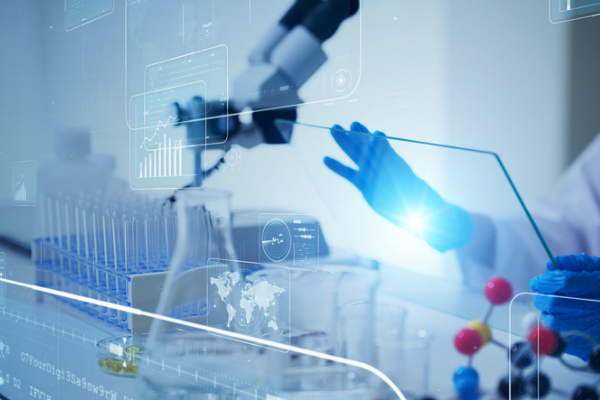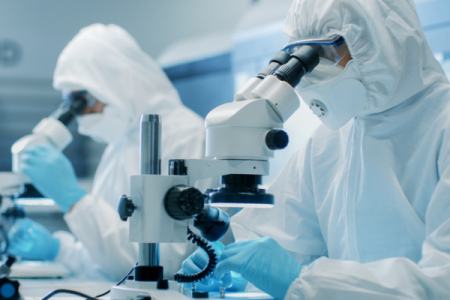
What key factors went into deciding to become a chemical technical professional (CTP)?
I grew up in Bangladesh, which is one of the most densely populated countries in the world. Imagine half the U.S. population living on a piece of land the size of one fifth of Texas. As a result, there is an incredible demand for all kind of goods such as food, clothing, medicine, education equipment and housing materials.
After completing high school, I learned that chemical engineers help civilization in a variety of ways: by increasing food production through manufacturing fertilizer, by combating disease through developing and mass-producing medications, by educating people through the production of pulp and paper, and by providing shelter through producing building materials. Every product we use daily -- from toothpaste to thermoplastics, from potato chips to silicon chips, from herbal oil to engine oil, from sugar powder to gun powder -- chemical engineers play an essential role in mass scale production. I found it compelling to pursue chemical engineering to help improve the quality of life for people.
Describe your job as a chemical technical professional. What was your favorite part?
I specialize in Chemical Process Safety Engineering. As the chemicals we rely on in society can be hazardous if not properly managed, we must operate in a way that controls the hazards while maximizing the benefits. As a Technical Process Safety Professional, I deal with situations that could potentially cause major incidents or have harmful effects leading to severe consequences for humans. My job is to identify potentially hazardous situations, and once identified, determine what can be done to prevent escalation. I assess if any safety system is required to minimize any risks that could arise from handling the chemical.
My favorite part of this job is the personal gratification. Doing my job properly means that not only the living standard of people is improved, but more importantly, those who are on the front line in manufacturing are safe and go back home to their loved ones at the end of the day. It also means the sustainability of my employer through avoiding downtime, business interruption, and maintaining a good reputation.
What daily tasks did you normally tackle as part of a typical workday?
Typically, I get involved in process hazard analysis or dust hazard analysis studies that are a multi-disciplinary team effort analyzing every area of the plant to seek out any potential issues, the likelihood of occurrence, and how to counter them should it be necessary. I spend a lot of my day designing and revalidating Overpressure Relief Systems, Explosion Relief Systems, Flashback Protection System, Effluent Handling Systems, etc.
Sometimes, I get involved in audit or resolving audit findings. I also represent BASF in the National Fire Protection Association explosion protection committee, and hence I get a lot of requests from other engineers to interpret the code and standards, verifications of their designs, or coming up with innovative solutions for complex cases. I love the days when I am training others. Every year I teach different topics to our fellow engineers on overpressure protection, combustible dust hazards, flashbacks, etc. I also write/edit handbooks to provide guidance in areas where industry standards are lacking.
I am also an information protection officer for my unit. In this role, I provide guidance to my teams on how to protect themselves from external and internal information security threats.
What was the biggest challenge you confronted in your career?
As a human being, we play a crucial role in the overall safety equation. We are both part of the problem as well as the solution. The biggest challenge I have faced and keep facing is how to minimize human error while maximizing the human capability to create a reliable safety system. This is an ongoing field of research that requires specialists ranging from safety engineering, computer science, psychology, medical science, etc. Hence, sometimes I must make decisions in absence of all the information. Often there are more unknowns than knowns.
These situations are very difficult because on the one hand, the safety of people depends on my decision and on the other hand, being overly conservative adds an unnecessary cost burden, inefficient use of resources and it may not even provide the intended safer means. I found that human-centric design considering the life cycle of equipment and plant is the most beneficial.
However, in an existing plant it may not always be feasible. A good operations discipline, in-depth analysis of incidents, and implementation of the lessons learned is beneficial for many existing cases in reducing human error. Overall, this can only be achieved with a best-in-class safety culture. Fostering such culture requires everyone in the organization working as one. While I am trying different principles, I am still learning new ways to improve process safety culture at my work.
What’s the one thing you wish you had learned earlier in your career?
I have moved from academia to industry to make a more direct impact. I wanted to transform how we practice process safety. I implemented several ideas and set examples on how it can be done in a better and efficient way. For sure this had some impact. However, the realization came later that it is not as transformational as I thought it would be. While using better computational methods, more realistic equations make my designs safer and robust, to transform the practice of process safety I must work with people. The more they know, the more powerful the impact can be. I started coaching more people, giving seminars, writing handbooks. I am looking for ways to multiply and instill the knowledge to other people. Having an outstanding technical background is great, but sharing this know-how is even better.
Think about an early career CTP. What’s your best piece of advice to help them succeed in the workplace?
I would say, think about the big picture and what part you want to play in that picture. Context matters. The earlier you understand your role the easier it becomes to make career decisions. To become successful, the motivation needs to come from inside. Search inside for what you are doing and why. Is this gratifying enough? If not, what would make you fulfilled? Engage in discussions about the topics you are passionate about. This may help crystallize your thoughts. Once you know what you want, only the willingness to learn and listen will take you to the doorstep of success.
How important is gaining new skills to achieving success as a CTP? Do you think it is better to be a self-learner, or were you a fan of taking additional classes/seminars to gain new skills?
I believe in the saying by Albert Einstein about learning: “Once you stop learning, you start dying”. As a human being I don’t see any alternative but to keep learning. For a CTP, it is of special importance to learn about new materials, new technology -- all the changes that are happening at their workplace just to maintain the quality of their work. Learning new skills is also crucial for career growth. Sometimes, a CTP can be superb in technical knowledge, but weak in interpersonal skills. By developing these soft skills, they can make a bigger impact and convey their message to a broader audience.
I believe that the drive to learn is most important. Some people are great at self-learning while others learn better in a classroom setting. Often a self-learner can struggle if the subject requires some special background. For such situations, I would recommend having a mentor or going to classes. People who specialize in such subjects can accelerate the learning process, as well as demystify or help the student to avoid pitfalls.
What are the hallmarks of a good technician/supervisor relationship?
There are four factors– trust, openness, challenges, and responsibility. Having a trusting relationship encourages the technician to become entrepreneurial and seek innovative ideas. They will volunteer more to become part of the solution. The technician needs to demonstrate that their decision making is scientific and adding value. On the other hand, openness and transparency on the supervisor’s part fosters a trusting relationship. While trust is important, it only works if both parties know that they will be challenged to prove or demonstrate the basis of their decisions. Unchallenged decisions can result in mistrust and can often become detrimental in the relationship due to our inherent privileges and bias. Both parties must take ownership of decisions, which makes them accountable. This will create an environment of mutual respect and collaboration.
How does your job provide “a bridge”? For example, between lab and consumer, science and manufacturing, or idea and implementation?
Process safety is a core value of manufacturing. As we increase the scale of manufacturing, the potential for negative consequences of chemical hazards also increases. Sometimes, a toxic chemical in a lab does not pose a significant threat due to its small quantity, however, tons of that material can be catastrophically damaging if released.
My job provides the bridge making sure that at a larger scale there is adequate design and engineering measures to prevent such releases. Implementation of the inherently safer design principles, adherence to industry best practices, uses of applicable codes and standards and selection of proven technologies can enable the scale of manufacturing while significantly lowering the risk of catastrophic consequences.
What do you like to do with your time away from the workplace?
I am a fan of many sports – soccer, cricket, badminton, and table tennis. Currently, I am leading a newly formed cricket team participating in a summer tournament in the Metro Detroit Area. I enjoy sharing my passion for cricket. And I am proud of my players. I also like camping, fishing, and traveling.
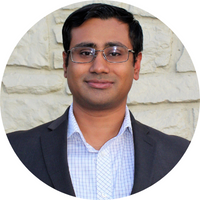
Monir Ahammad works at BASF corporation where he supports facilities in North America with process safety engineering and compliance with the regulations. He has been recognized as a technical expert on various process safety topics, including explosion protection, combustible dust, and overpressure protection. He provides site engineering support, writes internal guidance and standards, and provides expert training to engineers.
Prior to joining BASF, Monir worked at ERI Solutions Inc. as a Process Safety Management Engineer. In that role, he led process safety and risk management efforts for ERI’s clients’ regulatory, performance and research needs. Monir also spent six years at the Mary Kay O’Connor Process Safety Center at Texas A&M University (TAMU).
He graduated from Bangladesh University of Engineering and Technology with a BS and MS in Chemical Engineering and a Ph.D. from TAMU. He was also employed at both universities as a lecturer of chemical engineering.
This article has been edited for length and clarity. The opinions expressed in this article are the author's own and do not necessarily reflect the view of their employer or the American Chemical Society.

